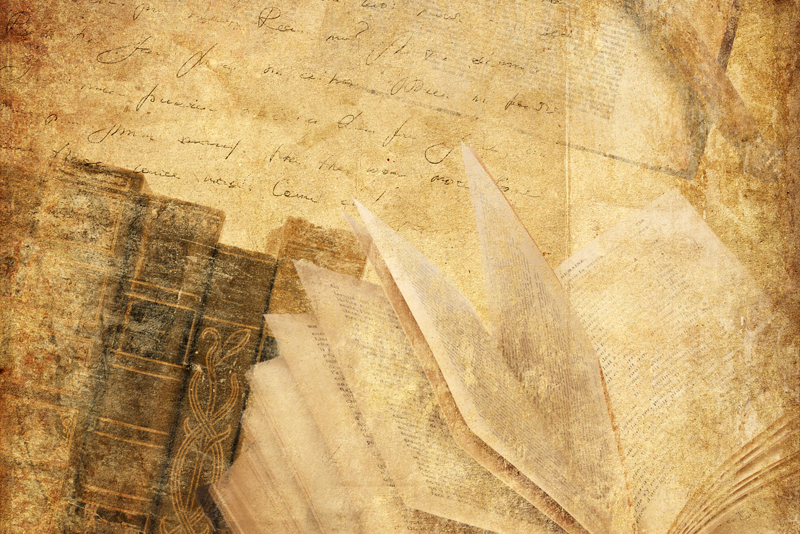Why We Read What We Read - Review

"A Delightfully Opinionated Journey Through Bestselling Books" / "Exploring Contemporary Bestsellers and What They Say About Our Books and Ourselves"
The title of this book is what first drew me to John Heath and Lisa Adams non-fiction collaboration. Why we read what we read is a question I've often asked myself when I hear about popular books.
Using the bestsellers lists from Publishers Weekly and USA Today (1993 - 2003) the authors read all the books we were buying and devised an opinion on what type of readers buy what books. They looked at four categories: hardcover fiction, hardcover non-fiction, trade paperback (fiction and non-fiction) and mass market paperback (fiction); but deliberately steered clear of reference books, books made into movies, biographies, memoirs and cookbooks.
The book is broken into six chapters:
1 - The Obvious: Diet Wealth, and Inspiration
2 - Black and White and Read All Over: Good & Evil in Bestselling Adventure Novels and Political Non-fiction
3 - Hopefully Ever After: Love, Romance, and Relationships
4 - Soul Train: Religion and Spirituality
5 - Reading for Redemption: Trials and Triumphs
6 - Deciphering "Da Code": Conclusions
Appendix - Best sellers lists from 1991 - 2005 from Publishers Weekly and USA Today's 100 Top books from 1993 - 2003.
I think their overall sense can be felt in this quote: "Is there no hope for our idiot nation of hate-filled soul vampires?" If anyone is hate-filled it is definitely these two authors who seem to have no respect for the book buyers of America. The sarcasm that can be found throughout is really not amusing. Like the sidebar for Chicken Soup book titles they'd like to see: "Empty Bowl for the Anorexic Soul" or "Chicken Soup for the Aryan Nation Soul".
Romance readers and Low-Carbers get a particular bashing. "Ultimately, the low-carb craze was about instant results, cultish devotion, overly simplistic answers to complex psychological and physiological issues, and self-imposed insulation from critique and alternative voices". For romance readers they had this to say, "Women read to renew their hopes that marriages to hyper-masculine can be emotionally fulfilling... But it's awfully sad, no way around it, when a book provides more sustenance than a mate." I don't know who they thought would be reading their book but it obviously wasn't people interested in these two subjects.
They also spend a lot of time harping on Dan Brown's books, The Da Vinci Code /Angels and Demons and how they are essentially the same book (a repetitive annoyance).
The impression I was left was that American readers are simplistic, lazy, know-it-all, escapists with no "attention span" or "ability to sustain antithetical ideas"; who are only looking for reinforcement for our own beliefs. Their findings "suggest that readers are increasing attracted to simple, univocal reinforcements of hunches rather than complex, challenging efforts to search for real answers". More than explain why we read what we read, it explains why we are fools for the book choices we make.
This collection of bestseller reviews hasn't given me any insight into the book's main theme. The authors' attempts at humor are just shoddy insults at best that distract from the book and irritate more than educate. Most of the books discussed were trashed or given mediocre raves. Except for John Grisham who they call a "book-selling god".
So who is this book good for? This is a great exploration of bestsellers for any writer who wants to tap into what readers are reading. But the why is still open for interpretation. The authors tell us what we prefer to read but not necessarily why we prefer it. While I felt myself agreeing with some of their statements I don't feel I know the choices of readers any better after reading this book. I would have had more fun reading some of the bestsellers they were bashing.
John Heath / Lisa Adams 2007
Sourcebooks
Why We Read What We Read is available from Amazon.com.
Why We Read What We Read is available from Amazon.ca.
M. E. Wood lives in Eastern Ontario, Canada. If you are going to find this eclectic reader and writer anywhere it is probably at her computer. For more information visit her official website.
The title of this book is what first drew me to John Heath and Lisa Adams non-fiction collaboration. Why we read what we read is a question I've often asked myself when I hear about popular books.
Using the bestsellers lists from Publishers Weekly and USA Today (1993 - 2003) the authors read all the books we were buying and devised an opinion on what type of readers buy what books. They looked at four categories: hardcover fiction, hardcover non-fiction, trade paperback (fiction and non-fiction) and mass market paperback (fiction); but deliberately steered clear of reference books, books made into movies, biographies, memoirs and cookbooks.
The book is broken into six chapters:
1 - The Obvious: Diet Wealth, and Inspiration
2 - Black and White and Read All Over: Good & Evil in Bestselling Adventure Novels and Political Non-fiction
3 - Hopefully Ever After: Love, Romance, and Relationships
4 - Soul Train: Religion and Spirituality
5 - Reading for Redemption: Trials and Triumphs
6 - Deciphering "Da Code": Conclusions
Appendix - Best sellers lists from 1991 - 2005 from Publishers Weekly and USA Today's 100 Top books from 1993 - 2003.
I think their overall sense can be felt in this quote: "Is there no hope for our idiot nation of hate-filled soul vampires?" If anyone is hate-filled it is definitely these two authors who seem to have no respect for the book buyers of America. The sarcasm that can be found throughout is really not amusing. Like the sidebar for Chicken Soup book titles they'd like to see: "Empty Bowl for the Anorexic Soul" or "Chicken Soup for the Aryan Nation Soul".
Romance readers and Low-Carbers get a particular bashing. "Ultimately, the low-carb craze was about instant results, cultish devotion, overly simplistic answers to complex psychological and physiological issues, and self-imposed insulation from critique and alternative voices". For romance readers they had this to say, "Women read to renew their hopes that marriages to hyper-masculine can be emotionally fulfilling... But it's awfully sad, no way around it, when a book provides more sustenance than a mate." I don't know who they thought would be reading their book but it obviously wasn't people interested in these two subjects.
They also spend a lot of time harping on Dan Brown's books, The Da Vinci Code /Angels and Demons and how they are essentially the same book (a repetitive annoyance).
The impression I was left was that American readers are simplistic, lazy, know-it-all, escapists with no "attention span" or "ability to sustain antithetical ideas"; who are only looking for reinforcement for our own beliefs. Their findings "suggest that readers are increasing attracted to simple, univocal reinforcements of hunches rather than complex, challenging efforts to search for real answers". More than explain why we read what we read, it explains why we are fools for the book choices we make.
This collection of bestseller reviews hasn't given me any insight into the book's main theme. The authors' attempts at humor are just shoddy insults at best that distract from the book and irritate more than educate. Most of the books discussed were trashed or given mediocre raves. Except for John Grisham who they call a "book-selling god".

So who is this book good for? This is a great exploration of bestsellers for any writer who wants to tap into what readers are reading. But the why is still open for interpretation. The authors tell us what we prefer to read but not necessarily why we prefer it. While I felt myself agreeing with some of their statements I don't feel I know the choices of readers any better after reading this book. I would have had more fun reading some of the bestsellers they were bashing.
John Heath / Lisa Adams 2007
Sourcebooks
Why We Read What We Read is available from Amazon.com.
Why We Read What We Read is available from Amazon.ca.
M. E. Wood lives in Eastern Ontario, Canada. If you are going to find this eclectic reader and writer anywhere it is probably at her computer. For more information visit her official website.
You Should Also Read:
Tamar Yellin - Author Interview
GirlEbooks
Orange Prize Reading List

Related Articles
Editor's Picks Articles
Top Ten Articles
Previous Features
Site Map
Content copyright © 2023 by M. E. Wood. All rights reserved.
This content was written by M. E. Wood. If you wish to use this content in any manner, you need written permission. Contact Yvonne Ije for details.







